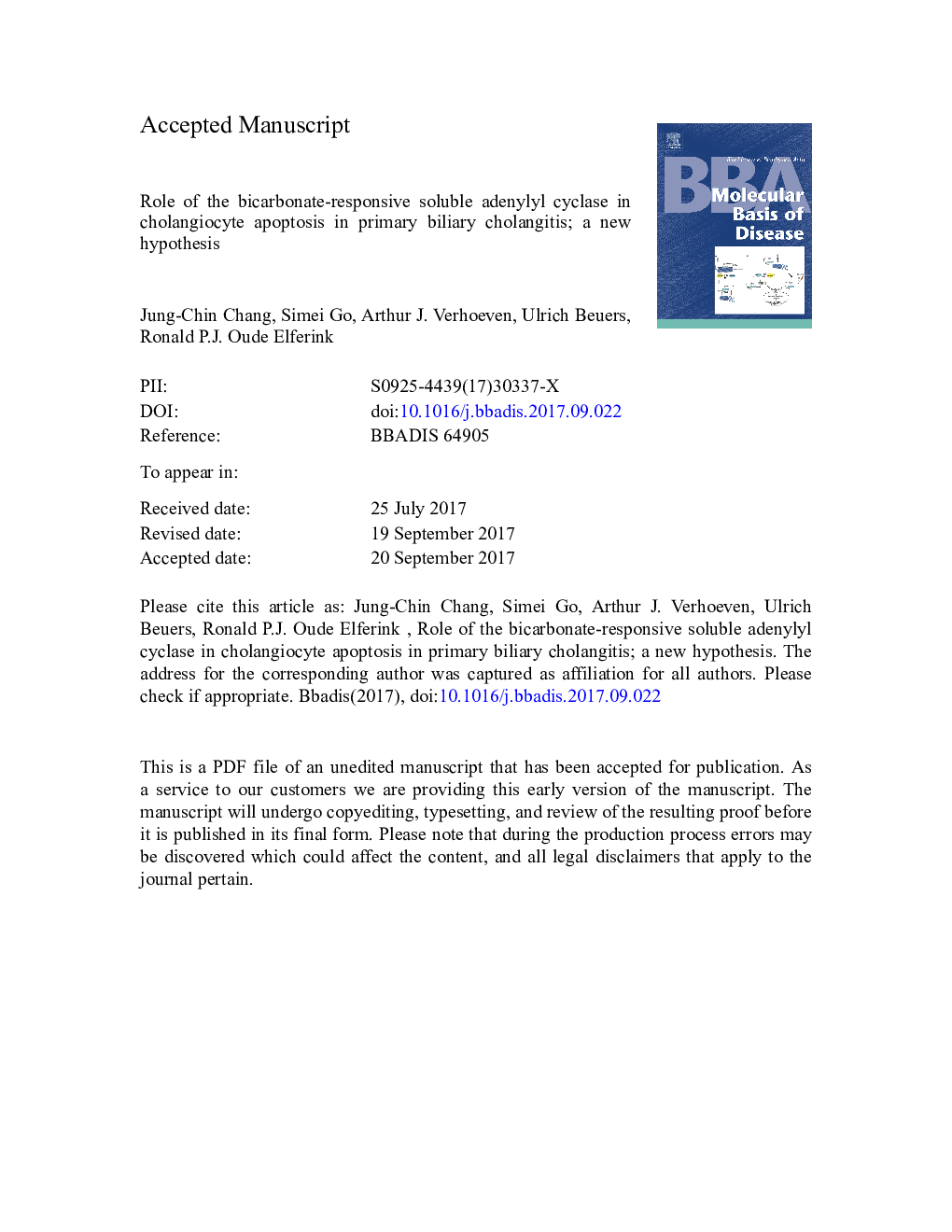| کد مقاله | کد نشریه | سال انتشار | مقاله انگلیسی | نسخه تمام متن |
|---|---|---|---|---|
| 8258495 | 1534609 | 2018 | 47 صفحه PDF | دانلود رایگان |
عنوان انگلیسی مقاله ISI
Role of the bicarbonate-responsive soluble adenylyl cyclase in cholangiocyte apoptosis in primary biliary cholangitis; a new hypothesis
ترجمه فارسی عنوان
نقش آدنیلیل سیکلاز محلول در بی کربنات در آپوپتوز کولنگیوسیت در کلانژیت اولیه صفراوی؛ یک فرضیه جدید
دانلود مقاله + سفارش ترجمه
دانلود مقاله ISI انگلیسی
رایگان برای ایرانیان
کلمات کلیدی
موضوعات مرتبط
علوم زیستی و بیوفناوری
بیوشیمی، ژنتیک و زیست شناسی مولکولی
سالمندی
چکیده انگلیسی
Primary biliary cholangitis (PBC) is a chronic fibrosing cholangiopathy characterized by an autoimmune stereotype and defective biliary bicarbonate secretion due to down-regulation of anion exchanger 2 (AE2). Despite the autoimmune features, immunosuppressants are ineffective while two bile acid-based therapies (ursodeoxycholic acid and obeticholic acid) have been shown to improve biochemical and histological features of cholestasis and long-term prognosis. However, the etiology and pathogenesis of PBC is largely unknown. Recently, it has been shown that microRNA-506 (miR-506) on chromosome X is up-regulated in PBC cholangiocytes and suppresses AE2 expression, which sensitizes cholangiocytes to bile salt-induced apoptosis by activating soluble adenylyl cyclase (sAC), an evolutionarily conserved bicarbonate sensor. In this review, we discuss the experimental evidence for the emerging role of the miR-506-AE2-sAC axis in PBC pathogenesis. We further hypothesize that the initial disease trigger induces an X-linked epigenetic change, leading to a female-biased activation of the miR-506-AE2-sAC axis. This article is part of a Special Issue entitled: Cholangiocytes in Health and Diseaseedited by Jesus Banales, Marco Marzioni and Peter Jansen.
ناشر
Database: Elsevier - ScienceDirect (ساینس دایرکت)
Journal: Biochimica et Biophysica Acta (BBA) - Molecular Basis of Disease - Volume 1864, Issue 4, Part B, April 2018, Pages 1232-1239
Journal: Biochimica et Biophysica Acta (BBA) - Molecular Basis of Disease - Volume 1864, Issue 4, Part B, April 2018, Pages 1232-1239
نویسندگان
Jung-Chin Chang, Simei Go, Arthur J. Verhoeven, Ulrich Beuers, Ronald P.J. Oude Elferink,
